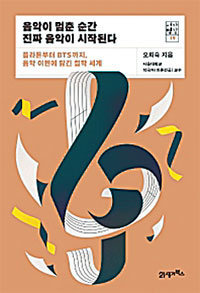Why does BTS’s ‘Spring Day’ sound like a tribute?
Why does BTS’s ‘Spring Day’ sound like a tribute?
Posted October. 02, 2021 07:16,
Updated October. 02, 2021 07:16
There are realism art and realism literature – is realism music possible? A professor of the department of composition at Seoul National University who wrote the book says that it is possible to embody realism with music even though it is invisible.
She mentioned BTS’s 2017 song ‘Spring Day’ as an example. Its slowly repeating lyrical melody and yearning lyrics make the listener of the song feel a sense of grieving. BTS did not specify that the song is a tribute to the victims of the Sewol sinking. However, those who listen to the song recreates the incident that took place in real life in their own ways. “Music embraces society,” says the author.
The author talks about the beauty and meaning of a number of songs, from classic to modern music. It’s called the aesthetics of music, which is a branch of philosophy that deals with the nature of art, beauty, and taste in music. The author explains the unfamiliar concept by giving examples ranging from classic songs, such as 'Clair de Lune' by Claude Debussy and 'Die Forelle' by Franz Schubert, to modern songs, such as ‘Tiger is Coming’ by band Leenalchi and ‘Spring Day’ by BTS.
Even though the examples might be familiar, the book can read a bit strange to its readers. In the era where people listen to music through mobile streaming services, philosophical thinking, such as “an appropriate playing creates musical meaning,” “music frees people’s mind,” and “paintings make us see what’s unseeable while music lets us listen to what’s unhearable,” leads us to ponder music that we listen to. Theodor W. Adorno, Friedrich Nietzsche, Jean-Jacques Rousseau and other well-known philosophers’ interpretation of the value of music is also interesting.
She also talks about the future change of music and how it would evolve. This is an era where artificial intelligence-based composers are emerging by quickly absorbing musical theories accumulated by humans. The author says that artificial intelligence is only copying human composition techniques but predicts that the creation of music will enter a new phase once artificial intelligence becomes more widely used.

pep@donga.com
Headline News
- Med professors announce intention to leave hospitals starting Thursday
- Bridge honoring Sgt. Moon Jae-sik unveiled in Pennsylvania
- Chief of Staff Chung tells presidential secretaries to stay away from politics
- US FTC bans noncompete agreements
- N. Korea launches cyberattacks on S. Korea's defense companies







